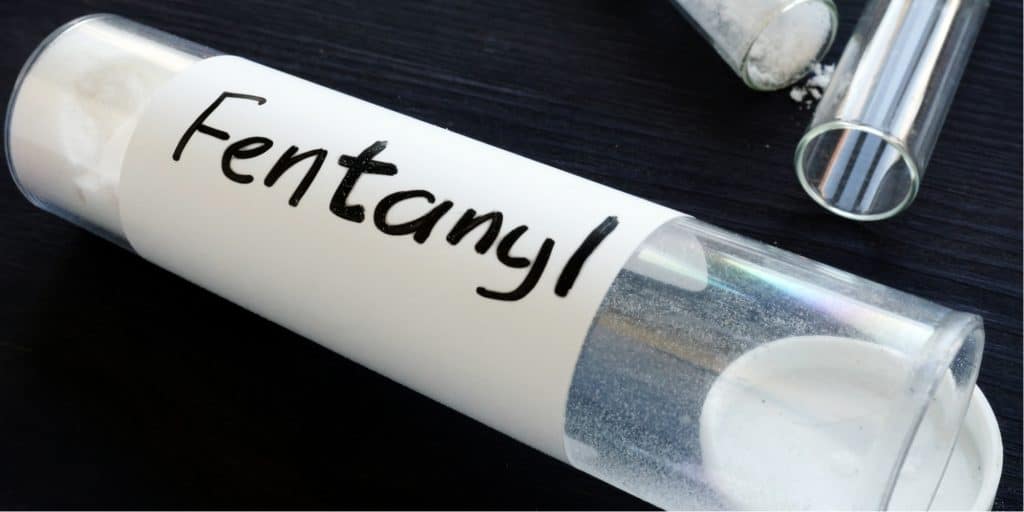
Throughout Southern Nevada, fentanyl has led to a concerning increase in overdose deaths. And that increase is especially troubling because the rate of fentanyl deaths was already high. In 2019, roughly 69,029 people died of drug overdoses, according to the Center for Disease Control and Prevention. Of those, 47% of all overdose deaths came from fentanyl or another synthetic opioid other than methadone.
As Lav Vegas continues to experience this rise in deadly overdoses due to fentanyl, the community has rightly become concerned. To help our Vegas community find real, workable solutions to this problem, we’d like to explain why local fentanyl deaths are on the rise and what we can all do about it.
Table of Contents
What Is Fentanyl?

Fentanyl is a synthetic (or man-made) opioid that is sometimes used as a pain relief treatment. Because fentanyl was designed in a lab to be especially potent, its effects can go beyond typical opioid pain relievers. In fact, fentanyl is between 50 and 100 times more potent than morphine. Unfortunately, this increases both its desirability and its lethality for people addicted to opioids.
However, fentanyl is not a “bad drug” by itself. When used correctly, it can offer substantial pain relief for individuals with chronic pain or cancer. By binding with opioid receptors in the brain, fentanyl blocks pain signals and can greatly improve comfort and quality of life. However, its utility is balanced out by its addictive properties.
For people who will be using opioids for a prolonged time, there is real risk of developing an opioid addiction. As their bodies get more accustomed to a certain amount of opioids, they need more and more medication to get the same effect. This is doubly true for fentanyl, which is more potent than the vast majority of other opioid medications.
Now that we’ve covered the basics about fentanyl, let’s take a look at why the Las Vegas area has started seeing an uptick in fentanyl overdoses.
Why Are Fentanyl Deaths Rising in Las Vegas?

In July, Clark County reported that 63 individuals had died as a result of fentanyl overdoses. For context, there were 64 fentanyl overdose deaths in Clark County for all of 2019, which marks a drastic spike in deaths. In some cases, Clark County Coroner John Fudenberg saw up to five fentanyl-related deaths per day.
Why the stark increase? There are a few theories, and the truth is probably some combination of these ideas. This year has been especially hard due to the coronavirus pandemic. And while COVID can make life harder for anyone, it can especially damage people living with addiction issues.
During the coronavirus pandemic, people with substance use disorders are facing feelings of isolation, financial problems, and weakened support systems. All of these factors can come together to drastically increase the likelihood of somebody abusing illegal substances to cope with the distress of living through a pandemic.
Of course, there is another major issue with fentanyl abuse: Many people don’t realize they’re taking fentanyl. Fentanyl is often mixed with cocaine or other opioids to increase potency, and many dealers either don’t tell their buyers that or don’t realize it themselves. While opioid abuse cannot reasonably be called “safe” in any circumstance, this practice makes it even more dangerous because people don’t know what they’re putting into their bodies. Or, if they are intentionally seeking out fentanyl, they may be misinformed as to how much fentanyl they’re taking or how potent this opioid is.
Of course, this begs the question: Why are illegal drug manufacturers putting fentanyl in their product? Simply put: it’s cheap. Fentanyl costs less than many other opioids, which can make it more cost-effective when selling drugs illegally.
This is an issue affecting all of Clark County and several other states, including Ohio, Florida, and California, according to the American Medical Association. So that only leaves one question: What can we do about it?
Supporting Las Vegas Addiction Recovery
Unfortunately, people very rarely “just quit” addictive substances like opioids. It takes a lot of work, and it’s much easier to do with professional care and support. That is the kind of help that we want to share with the Las Vegas community during this deeply troubling time.
At the Vance Johnson Recovery Center, we start with helping individuals through the early stages of drug and alcohol detox. Quitting cold turkey at home often leads to relapse, so we provide a safe, secure setting where people can safely manage withdrawals without the temptation of using or drinking.
From there, most people transition to our inpatient and residential treatment options. Here, we provide customized care that addresses each patient’s history of substance abuse, their treatment goals, and their mental well-being. In this way, we provide care that meets each individual where they are and works with them to get them the help they need.
The increase in fentanyl deaths in Las Vegas means that our work is especially important now. If someone you love is abusing drugs, particularly opioids or cocaine, encouraging them to get help now could truly save their life.
If you have any questions about our programming, please give us a call at 888-828-2623 or fill out our confidential contact form. No matter how long you’ve been living with substance use disorder, the best time to get help is always today.
The post Las Vegas Fentanyl Deaths Rise: What Can We Do? appeared first on Vance Johnson Recovery Center.
Source
Original Author: Vance Johnson Recovery Center

